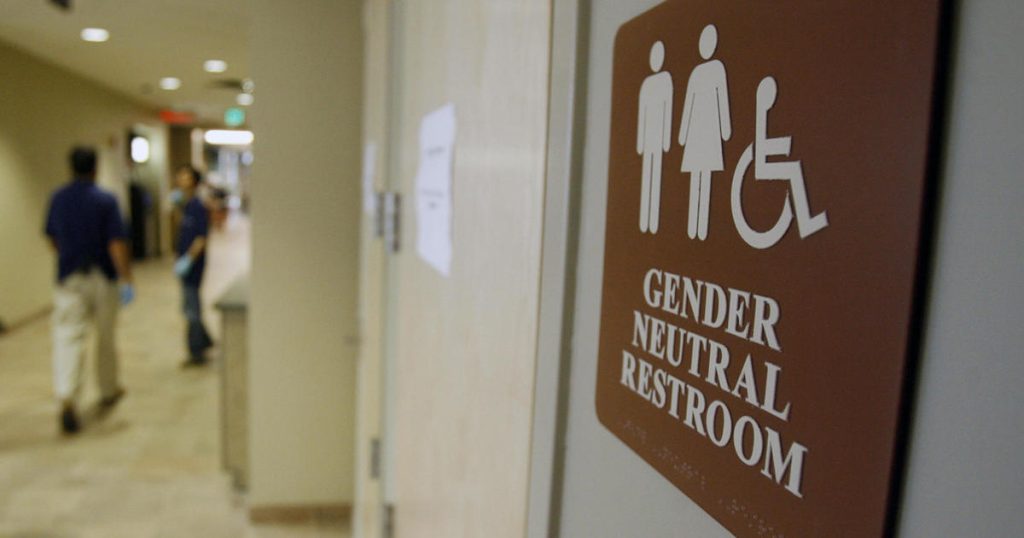The Ohio Senate recently approved a bill banning transgender students from using bathrooms that correspond with their gender identity, sending the measure to Republican Gov. Mike DeWine for consideration. The bill applies to public K-12 schools and higher education institutions, requiring them to designate separate bathrooms and locker rooms based on the gender assigned at birth. The ACLU of Ohio has condemned the bill as a violation of LGBTQ+ Ohioans’ privacy rights and a threat to their safety. Transgender individuals are at a higher risk of sexual violence and assault, particularly in public restrooms, which the bill fails to address.
The Center for Christian Virtue commended legislators for passing the bill, stating that it will protect the privacy and safety of girls and women in Ohio. However, opponents argue that the bill perpetuates discrimination and fear towards transgender and gender-nonconforming individuals. Currently, at least 11 states have similar laws in place barring transgender individuals from using bathrooms that align with their gender identity. Ohio House Republicans attached the bill to a proposal regarding the state’s college credit program for high school students, causing controversy among Democratic lawmakers who see it as an attack on the rights of transgender students.
The ACLU of Ohio is urging Gov. DeWine not to sign the bill, citing concerns about the impact it will have on transgender individuals of all ages. The organization argues that the legislation will create unsafe environments for transgender and gender-nonconforming individuals and increase the risk of sexual assault and violence. Research has shown that transgender and gender-nonbinary teens who face restroom and locker room restrictions have a higher prevalence of sexual assault, highlighting the potential harm of such discriminatory policies.
Ohio Democratic leaders have criticized the bill, calling it a form of discrimination that demonizes those who are different. They argue that the legislation is not about bathrooms, but rather about instilling fear and prejudice against transgender individuals. Despite the opposition, Gov. DeWine has expressed a willingness to sign the bill but will first conduct a legal review. The passage of the bill in Ohio reflects a larger trend of states enacting laws that restrict bathroom access for transgender individuals, further fueling the debate over LGBTQ+ rights and protections.
The bill’s supporters argue that it is necessary for safety and security, particularly in school settings where privacy concerns are paramount. By requiring separate bathroom facilities based on gender assigned at birth, proponents believe that the bill will protect the privacy and well-being of students. However, opponents contend that the legislation perpetuates discrimination and bias against transgender individuals, creating a hostile environment that undermines their rights and dignity. The ongoing debate in Ohio and other states highlights the complex and contentious nature of LGBTQ+ rights and the ongoing struggles for equality and acceptance.














